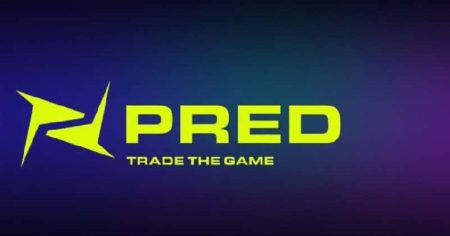Nike and StockX Settle Three-Year Legal Battle Over Sneaker NFTs and Counterfeits
High-Profile Trademark Dispute Reaches Abrupt Resolution Before October Trial
In a significant development for the digital collectibles market, sportswear giant Nike Inc. and online marketplace StockX have reached a settlement in their protracted legal battle over sneaker-linked NFTs and alleged counterfeit sales. The agreement, finalized last Friday in New York federal court, ends a three-year dispute that tested the boundaries of trademark law in the emerging world of digital assets tied to physical products.
The settlement immediately cancels the jury trial scheduled for October and dismisses all claims with prejudice, meaning neither party can refile the same claims in the future. For StockX, the Detroit-based platform valued at $3.8 billion in 2021, the resolution eliminates the risk of a potentially devastating jury verdict that could have impacted its business model. Nike, meanwhile, avoids the uncertainty of placing its brand protection strategy before unpredictable jurors while still having secured a partial victory earlier this year.
Origins of the Dispute: Digital Tokens and Physical Sneakers
The conflict began in February 2022 when Nike filed suit in the Southern District of New York, accusing StockX of trademark infringement and dilution. At the heart of Nike’s complaint was StockX’s “Vault” NFT program, which used images of Nike sneakers to sell digital tokens that represented ownership of physical shoes stored in StockX’s facilities.
“These unauthorized Nike-branded Vault NFTs are likely to confuse consumers, create a false association between those products and Nike, and dilute our valuable trademarks,” Nike argued in its initial filing. The sportswear manufacturer claimed that StockX was profiting from Nike’s brand reputation and intellectual property without authorization or compensation.
StockX responded vigorously to these allegations in March 2022, arguing that its Vault NFTs served a practical purpose rather than being standalone collectibles. “The NFTs are designed to track ownership of frequently traded physical products,” StockX contended, describing Nike’s lawsuit as reflecting “a fundamental misunderstanding of the various functions NFTs can serve.” The marketplace positioned its tokens as utility items that streamlined transactions for popular sneakers rather than independent digital assets.
Counterfeit Allegations Escalate the Stakes
The legal battle intensified in May 2022 when Nike amended its complaint to include allegations that StockX was selling counterfeit sneakers through its platform. Nike claimed that pairs it purchased directly from StockX failed the very authentication process the platform prominently advertises as a cornerstone of its service. This explosive claim significantly raised the stakes of the litigation, attacking the foundation of StockX’s business model and reputation for selling verified authentic products.
These counterfeit allegations gained traction earlier this year when Judge Valerie Caproni granted Nike partial summary judgment, finding StockX liable for distributing counterfeit goods. The ruling specifically addressed four pairs of shoes sold to Nike’s investigators and 33 pairs sold to a customer named Roy Kim. While this decision represented a significant victory for Nike, several claims remained unresolved, setting the stage for the trial that has now been averted through settlement.
Settlement Implications for Digital Collectibles Market
Industry experts view the abrupt resolution as a pivotal moment for the tokenized goods market, establishing clearer boundaries for how physical products can be represented in digital form without brand authorization. The settlement arrives at a time when the NFT market is maturing from its earlier speculative frenzy into a more regulated space.
“This settlement brings relief to the sneaker NFT market by removing the risk of a disruptive jury trial, but the real signal for the industry came earlier: when RTFKT shut down in December,” explained Dan Dadybayo, research and strategy lead at Unstoppable Wallet. RTFKT, a Nike-owned digital fashion studio that pioneered “phygital” products blending Nike Cryptokicks and collaborations with artists like Takashi Murakami, had been at the forefront of authorized physical-digital hybrid products.
The closure of RTFKT “showed how fragile hybrid models are when brand control and IP compliance aren’t crystal clear,” Dadybayo noted. This settlement further reinforces that “NFTs functioning as receipts for physical goods will survive, but tokens drifting into standalone collectibles without brand approval will face legal pressure.” The resolution signals “less tolerance for gray-area resale platforms” moving forward.
Future of Brand Rights in Digital and Physical Markets
The Nike-StockX case establishes important precedents for how intellectual property rights extend into digital representations of physical products. As Hank Huang, CEO of Kronos Research, observed, “NFTs are no longer a legal gray area,” with trademark rights becoming “essential for building credible, compliant platforms” as the tokenized collectible market “enters a more disciplined phase.”
This settlement marks a turning point in how brands will protect their intellectual property across physical and digital domains. For marketplaces and platforms dealing in authenticated goods, the case underscores the critical importance of establishing clear protocols around brand permissions before creating digital versions of branded products. The outcome suggests that while NFTs representing ownership of physical goods remain viable, their implementation requires careful consideration of trademark implications.
The resolution also reflects the evolving landscape of digital ownership, where the lines between physical assets and their digital counterparts continue to blur. As brands become increasingly protective of how their products appear in digital spaces, platforms must navigate complex intellectual property considerations alongside technological innovation. The Nike-StockX settlement doesn’t merely close a chapter on a high-profile legal dispute—it helps write the rulebook for how digital and physical commerce will intersect in the years ahead.
For consumers, the settlement reinforces the importance of purchasing from authorized channels or platforms with clear brand relationships, particularly when dealing with digital assets tied to physical products. As the market for authenticated goods continues to grow, both online and offline, the standards for verification and brand compliance are likely to become increasingly stringent, transforming how collectibles are bought, sold, and represented in digital form.















